Julius Caesar by William Shakespeare
77
"Julius Caesar" is a historical tragedy by William Shakespeare that explores themes of power, politics, betrayal, and the consequences of ambition. Here's a brief analysis:
1) Ambition and Power:
- The play delves into the theme of political ambition and its potential consequences. Ambitious characters like Caesar, Brutus, and Cassius grapple with the pursuit of power, and the play reflects on the dangers of unchecked political ambition.

2) Betrayal and Loyalty:
- Betrayal is a central theme, particularly in the relationship between Brutus and Caesar. Brutus, driven by a misguided sense of duty to the Roman Republic, betrays his friend in the belief that he is preventing tyranny. The play explores the complexities of loyalty and betrayal in the political realm.
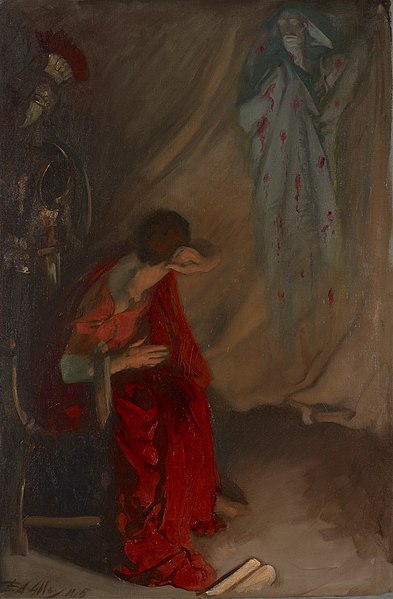
3) Fate and Free Will:
- "Julius Caesar" raises questions about fate and free will. The characters often grapple with the idea of destiny and whether their actions are predetermined or a result of their own choices.

4) Manipulation and Rhetoric:
- The play showcases the power of persuasion and rhetoric in politics. Characters like Cassius and Antony use manipulation and persuasive language to influence public opinion and achieve their goals.
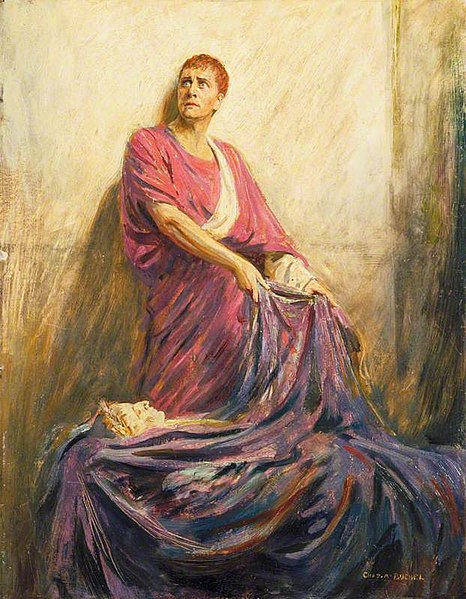
5) Tragic Flaw:
- Brutus's tragic flaw is his idealistic belief in the goodness of man and his vulnerability to manipulation. His honorable motives are exploited by Cassius, leading to tragic consequences.
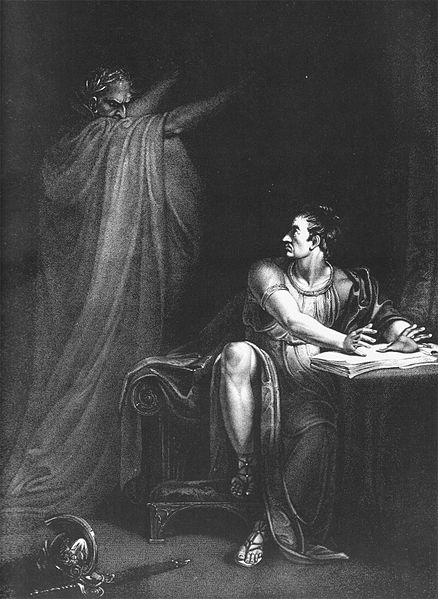
6) Public vs. Private Persona:
- The play explores the contrast between a public and private persona. Characters like Caesar and Brutus grapple with the expectations of the public and the private conflicts within themselves.

7) Role of the Mob:
- The fickleness of the Roman mob is a recurring theme. The masses are easily swayed by the powerful oratory of characters like Antony, illustrating the volatility of public opinion.

8) Symbolism of Caesar's Ghost:
- The appearance of Caesar's ghost is a powerful symbol in the play, representing the consequences of political upheaval and the haunting nature of betrayal.
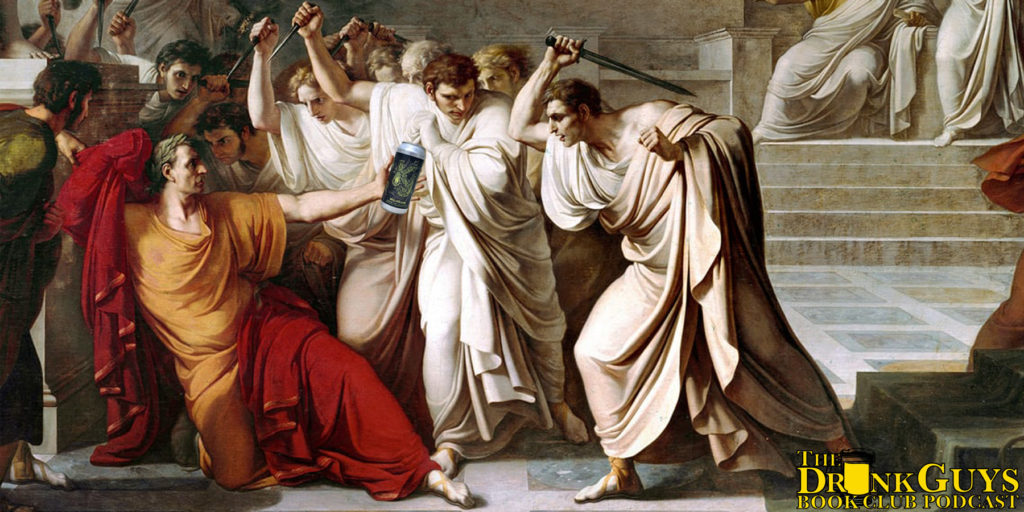
9) Civil War and Chaos:
- The assassination of Caesar leads to civil war and chaos in Rome. The play examines the destructive consequences of political instability and internal strife.
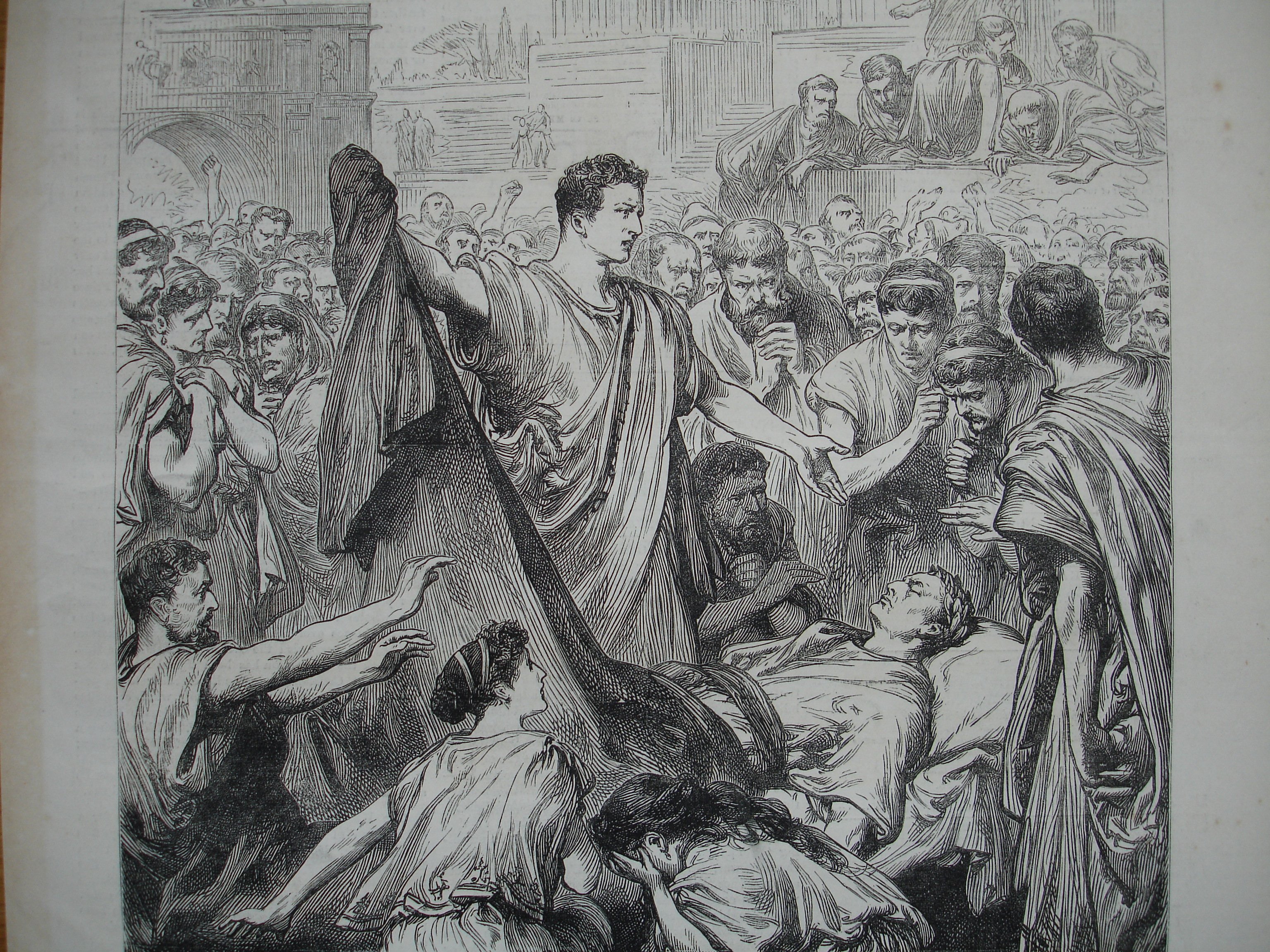
10) Irony and Foreshadowing:
- Shakespeare employs dramatic irony and foreshadowing throughout the play. The audience is often aware of impending events that the characters are unaware of, creating tension and complexity in the narrative.
"Julius Caesar" remains a compelling exploration of political intrigue, morality, and the complexities of leadership. The play's enduring relevance lies in its examination of the timeless themes of power, betrayal, and the consequences of political decisions.

Here is audiobook ''Julius Caesar'' for those who have no time to read the play;
Julius Caesar by William Shakespeare Audiobook;
References;
- Named in Parallel Lives and quoted in Spevack, Marvin (2004). Julius Caesar. New Cambridge Shakespeare (2 ed.). Cambridge, England: Cambridge University Press. p. 74. ISBN 978-0-521-53513-7.
- "Rinse the Blood Off My Toga". Canadian Adaptations of Shakespeare Project at the University of Guelph. Archived from the original on 26 June 2019. Retrieved 13 March 2010.
- Herbert Mitgang of The New York Times, 14 March 1984, wrote: "The famous Mercury Theater production of Julius Caesar in modern dress staged by Orson Welles in 1937 was designed to make audiences think of Mussolini's Blackshirts – and it did. The Riverside Shakespeare Company's lively production makes you think of timeless ambition and antilibertarians anywhere."
- Evans, G. Blakemore (1974). The Riverside Shakespeare. Houghton Mifflin Co. p. 1100.
- Richard Edes's Latin play Caesar Interfectus (1582?) would not qualify. The Admiral's Men had an anonymous Caesar and Pompey in their repertory in 1594–95, and another play, Caesar's Fall, or the Two Shapes, written by Thomas Dekker, Michael Drayton, Thomas Middleton, Anthony Munday, and John Webster, in 1601–02, too late for Platter's reference. Neither play has survived. The anonymous Caesar's Revenge dates to 1606, while George Chapman's Caesar and Pompey date from ca. 1613. E. K. Chambers, Elizabethan Stage, Vol. 2, p. 179; Vol. 3, pp. 259, 309; Vol. 4, p. 4.
Thank you for reading!
You can complete great comment tasks at here. #juliuscaesar #shakespeare #play #theatre #analysis #bookreview #audiobook










































